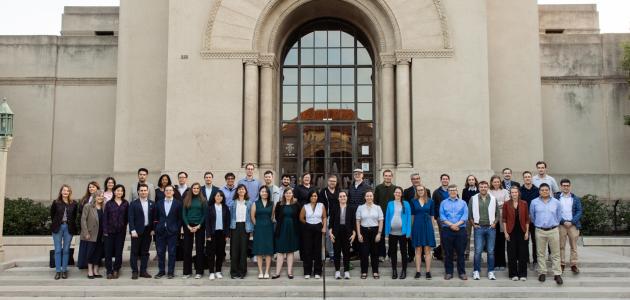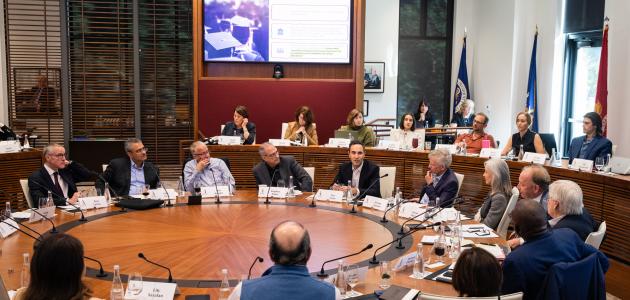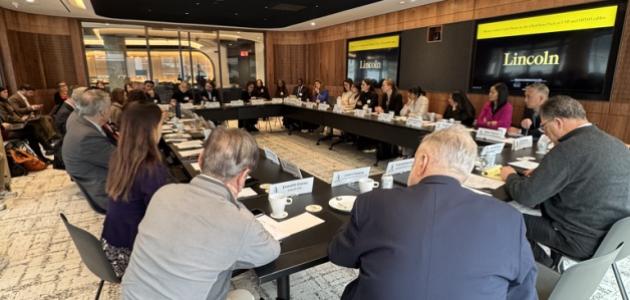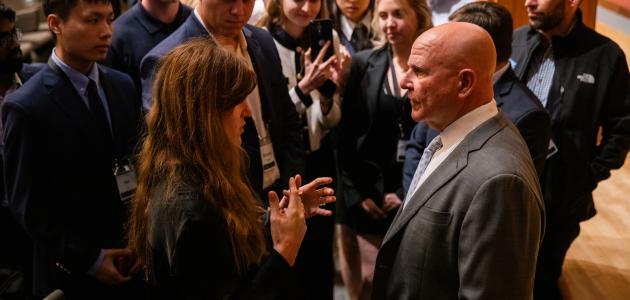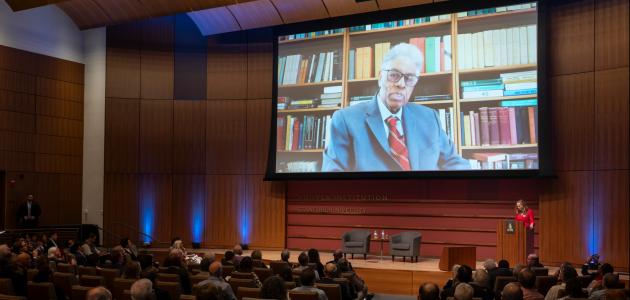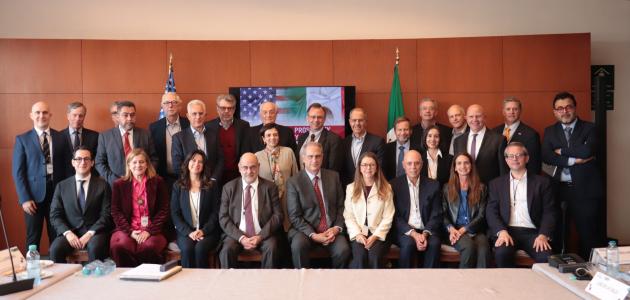


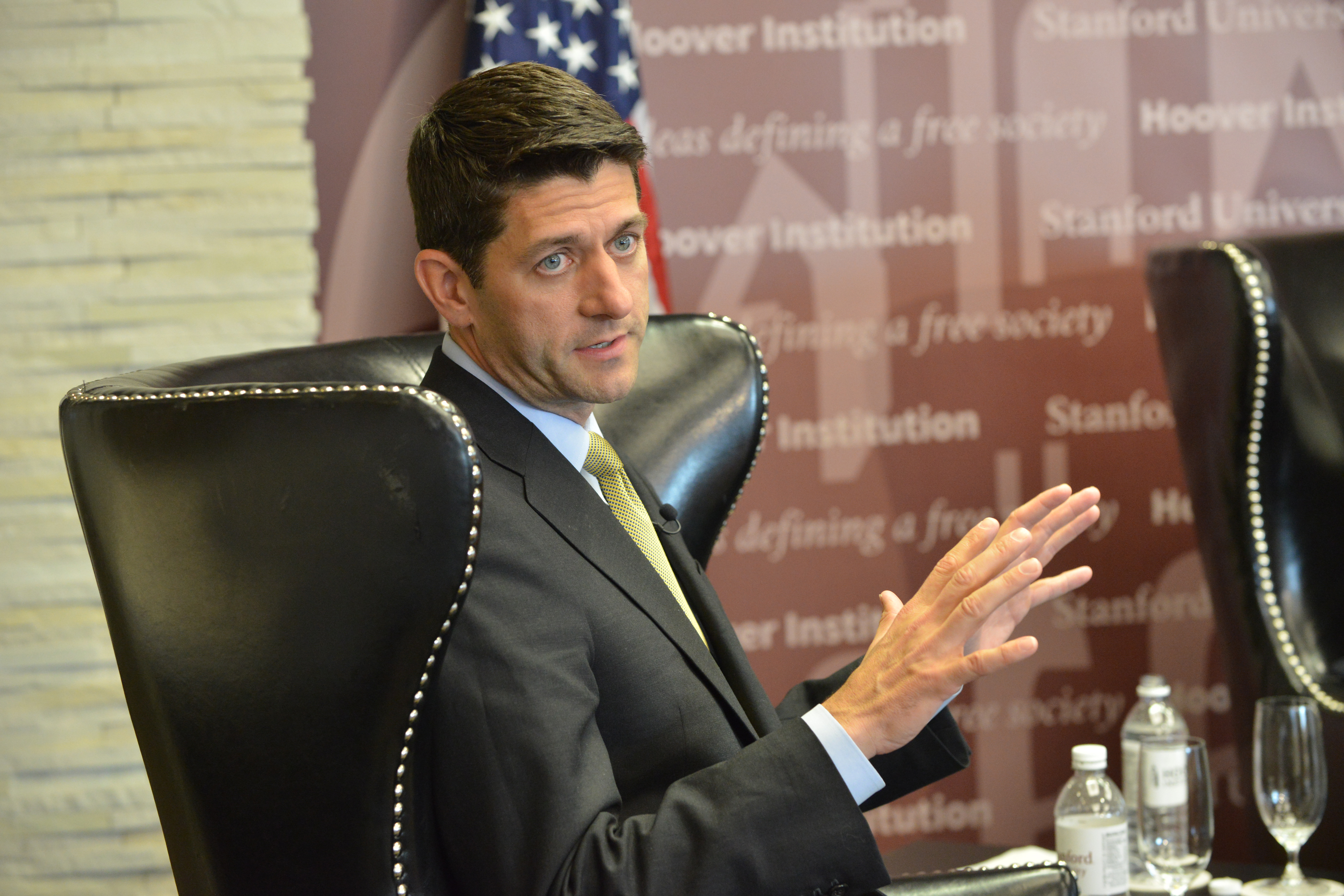
On Tuesday, July 22, the Hoover Institution in Washington hosted the forum “A Conversation on Innovation and Economic Growth.” The forum was moderated by Al Hunt, a host of Bloomberg Television, and featured three esteemed panelists: Congressman Paul Ryan, Stanford University president John Hennessy, and Hoover senior fellow and Stanford economics professor John Taylor.
The first topic of conversation concerned each panelist’s views on government involvement in innovation. Hennessy, speaking on the education sector, warned that, without government support for research and higher education, “the US could move from an innovation leader to second place.” He emphasized that most research and development funds in the United States were based on a merit review process, which, although at times imperfect, overall ensured that worthy projects were supported. Taylor largely agreed with Hennessy’s remarks regarding education, though emphasized that the government should focus less on choosing “winners and losers” and more on basic research with a lot of externalities that have far-reaching consequences for diverse fields. More broadly, Taylor argued, government involvement stifles innovation, asking, “Does it pass the cost-benefits test? I think in general government regulation does not.” He goes on to explain that as regulations become more complex, well-meaning companies have to spend resources to comply with those regulations instead of channeling those resources toward innovation. Taylor’s explanation segued to Ryan’s contribution to the topic, which focused on the need for corporate tax reform in the United States. Ryan argued that the current tax system put American companies at a “competitive disadvantage” and that, although Congress has attempted tax reforms that would prevent further losses of US companies, the Obama administration seems to lack a sense of urgency on the matter.
The conversation then turned to immigration, a subject on which the three panelists largely agreed on the need for swift reform. Hennessy advocated for a skills-based visa, pointing out that more than half of Stanford engineering graduate students were foreign. “We obviously make a big investment in educating them,” he said, “and the thought that they are going to leave without making a contribution to our economy is really a mistake.” Taylor echoed the sentiment, emphasizing that “this is not partisan, this is a wake-up call,” and Ryan arguing that “immigration is ultimately an economic issue” for combating stagnant economic growth and an aging population.
The final topic of discussion for the panel was US foreign policy in Asia, particularly China and India. Ryan emphasized the complex challenges that China’s rising hegemony poses to the US and its allies in the region, arguing that “we have to have a good answer for a China policy that brings China into a world economy, into playing by the rules . . . that’s the challenge of our generation.” Hennessy and Taylor focused on how China could be a potential ally for the United States in innovation, a characteristic that India, although teeming with talent, does not possess due to corruption and onerous regulations. “They get the entrepreneurial thing, unlike other parts of Asia,” commented Hennessy, closely echoed by Taylor’s ironic observation that “we’re moving away from markets, they’re moving to markets.” Despite these positive aspects, Taylor also warned that China had some troublesome macroeconomic issues to face at home before it could be an international economic power.
To close the event, the panelists participated in a question-and-answer period with the audience, touching on a wide spectrum of topics related to innovation, including human capital and the Common Core standards; how companies can better engage with government; intellectual property rights; and antitrust law’s application to the high-tech industry.
The video of the full discussion, including the question-and-answer period, is available here.















